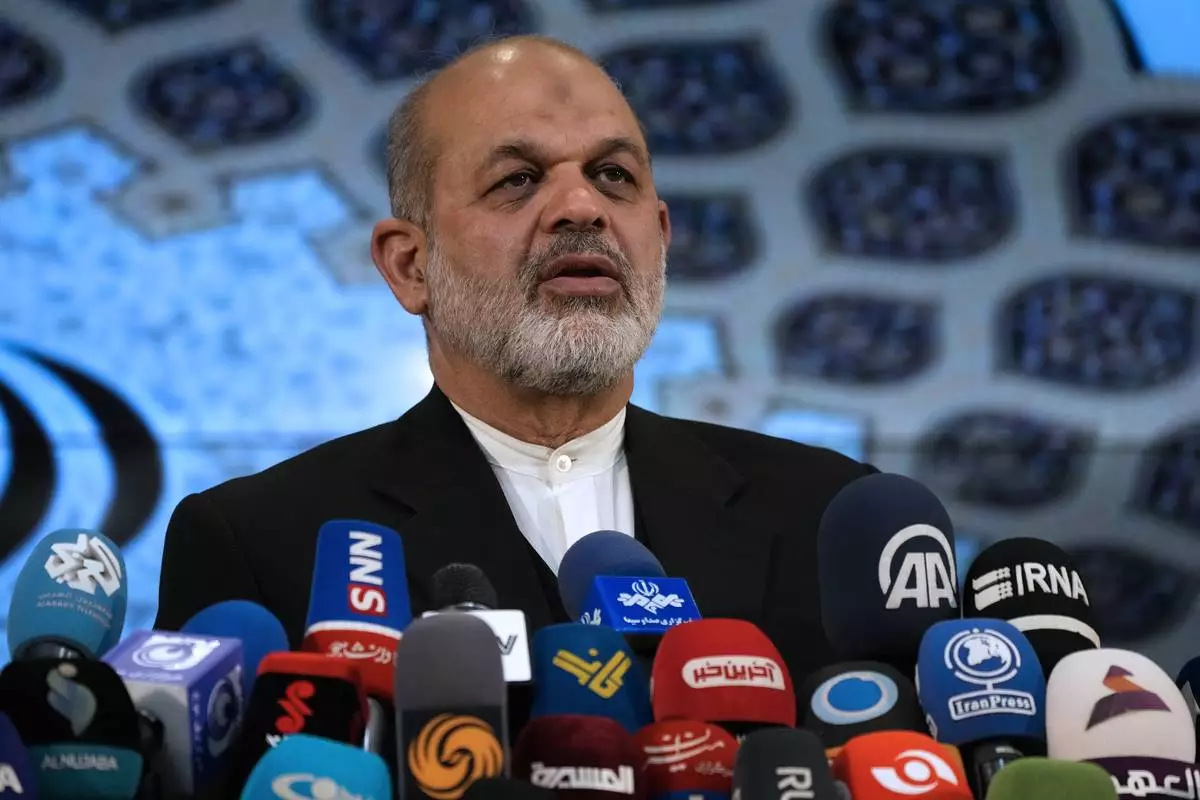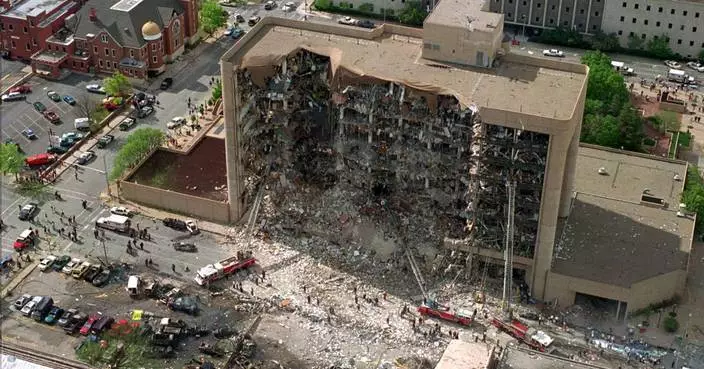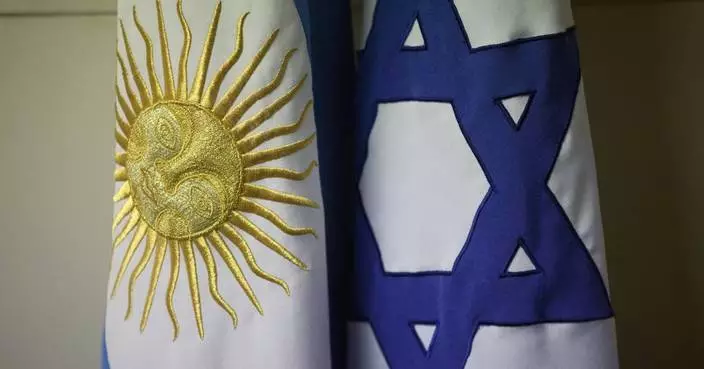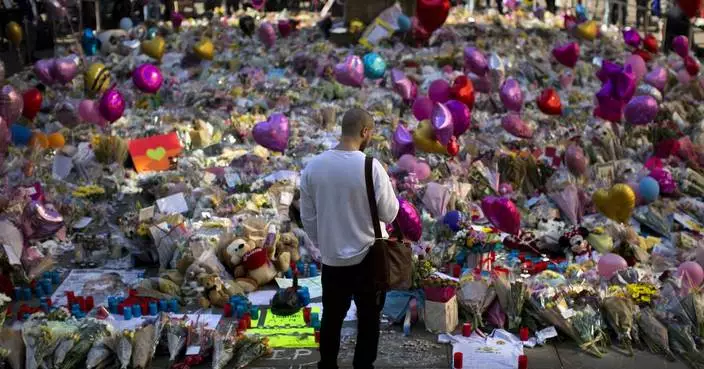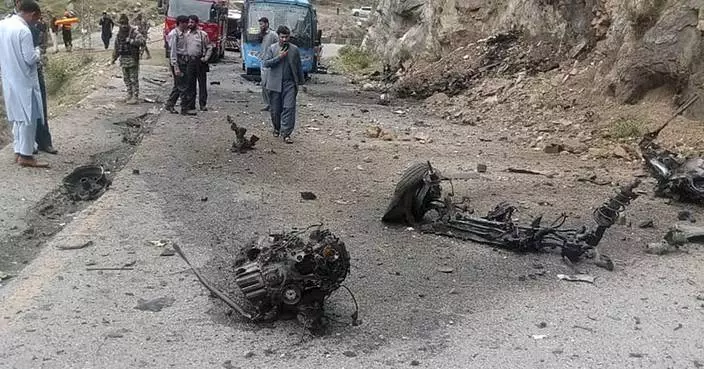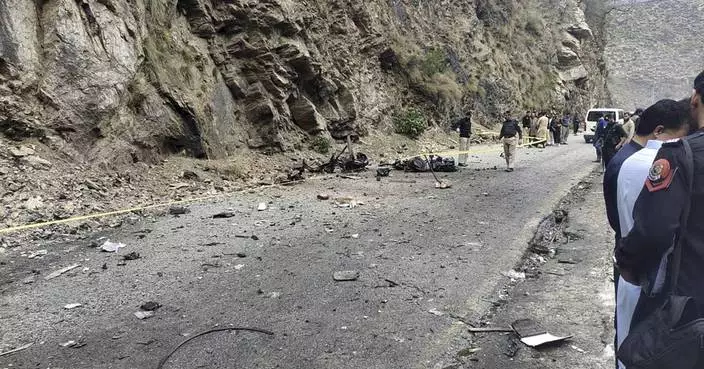The crude pipe bomb that exploded beneath the streets of New York this week served as a chilling reminder of the vulnerability of the city's subway system, a 24-hour-a-day operation with 472 stations and more than 5 million daily riders.
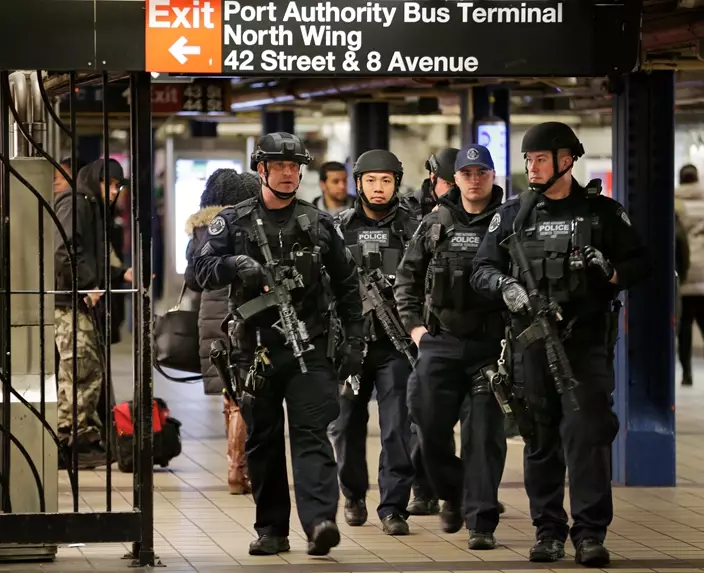
Police officers patrol in the passageway connecting New York City's Port Authority bus terminal and the Times Square subway station on Tuesday, Dec. 12, 2017, near the site of Monday's explosion. (AP Photo/Seth Wenig)
While police say the nation's largest subway system has some of the tightest security possible that still allows busy New Yorkers to get where they're going, they acknowledge they can't be everywhere or anticipate every kind of attack, particularly in this era of lone-wolf terrorism.
"It's very difficult, and it's getting harder," John Miller, the New York Police Department's deputy commissioner of intelligence and counterterrorism, said on CBS's "This Morning." ''This is not the al-Qaida model, where a cell of people who are communicating with a base are an intelligence problem."
Instead, he said, the threat is coming from people "where the conspiracy is within the confines of their own mind."
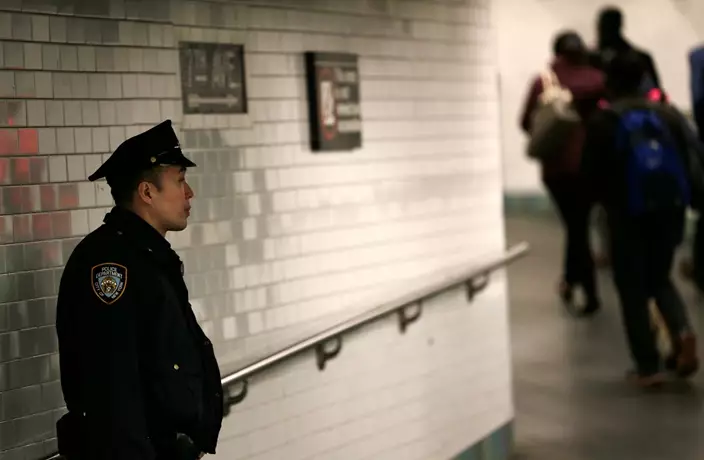
Police officers patrol in the passageway connecting New York City's Port Authority bus terminal and the Times Square subway station Tuesday, Dec. 12, 2017, near the site of Monday's explosion.(AP Photo/Seth Wenig)
Investigators say that appears to be what happened Monday, when a Bangladeshi immigrant indoctrinated into terrorism through internet videos strapped a bomb to his body and set it off in a busy passageway. He was the only one seriously hurt, suffering burns on his hands and torso.
Akayed Ullah, who's 27, was charged with federal terrorism-related offenses punishable by up to life in prison and was informed of the charges via video Wednesday as he lay in his hospital bed. He did not enter a plea and said little during the hearing, which lasted a little over 10 minutes.
It was the second lone-wolf terror attack on the city in six weeks. On Oct. 31, a man in a rented truck mowed down cyclists and pedestrians on a crowded bike path near the World Trade Center, killing eight people.
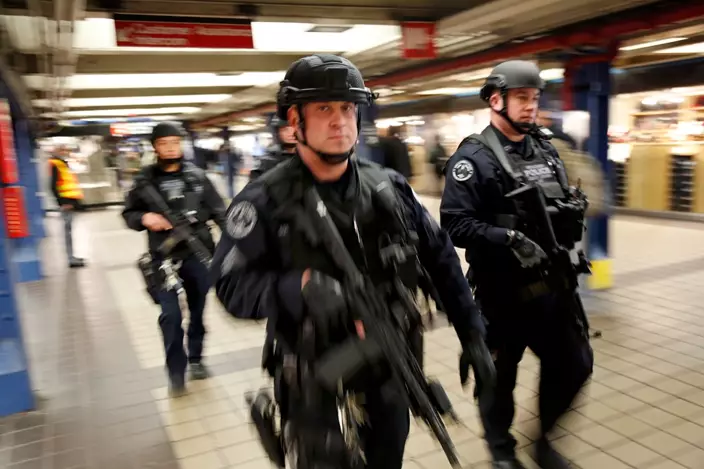
Police officers patrol in the passageway connecting New York City's Port Authority bus terminal and the Times Square subway station Tuesday, Dec. 12, 2017, near the site of Monday's explosion. (AP Photo/Seth Wenig)
But the blast this week was the first bombing on the subway in 23 years, a streak police attribute in part to a multilayered security approach that begins with 3,000 officers underground every day, patrolling trains and platforms.
That's bolstered by hundreds of security cameras, including one that captured detailed pictures of Monday's explosion, and roving teams of officers with heavy weapons and dogs to sweep subway stations and trains. Officers are outfitted with pager-size radiation detectors to guard against a radioactive dirty bomb. Police also conduct tens of thousands of random bag searches in the system each year.
Yet those officers are confronted daily with thousands of people of every background, from every corner of the globe, carrying big backpacks, suitcases and large boxes, with no easy way of knowing whether any of those items contain a bomb.
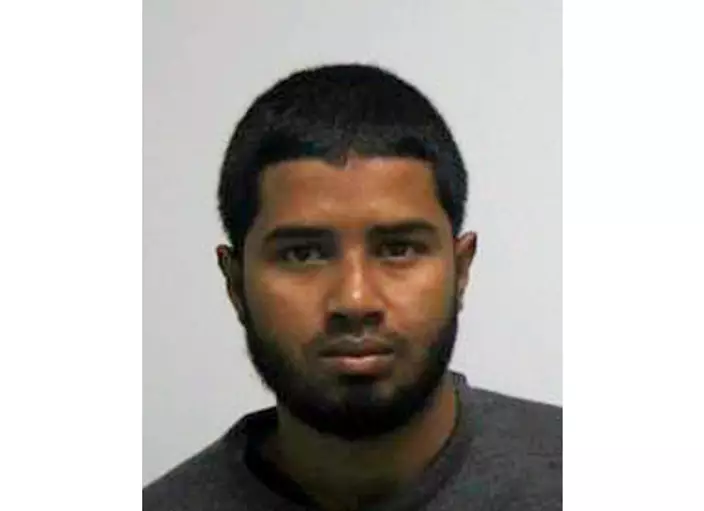
FILE - This undated photo provided by the New York City Taxi and Limousine Commission shows Akayed Ullah, the suspect in the explosion near New York's Times Square. (New York City Taxi and Limousine Commission via AP) (NY Taxi and Limousine Commission via AP)
Police have to rely on riders as their eyes and ears, constantly reminding them, "If you see something, say something."
"Look up from your phones. Look up from your books now and then. Take your earphones out. You can't say something when you see something if you don't look at it," Joseph Fox, chief of the NYPD's transit bureau, urged New Yorkers after the attack.
But the see-something, say-something system didn't work Monday. Authorities said Ullah boarded a subway train deep in Brooklyn with a bomb strapped to his torso, spent nearly an hour riding into Manhattan, changing trains along the way, and walked through one of the most heavily patrolled subway stations before triggering the device in front of a security camera.
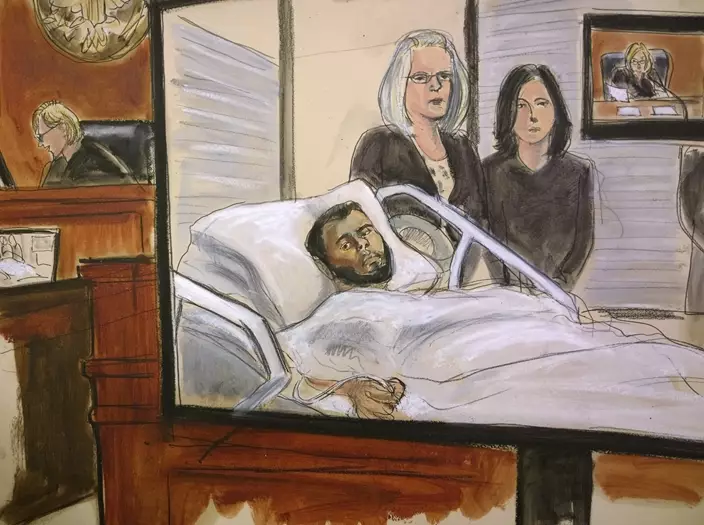
In this courtroom sketch, defendant Akayed Ullah is seen on a video monitor from his hospital room, joined by his attorneys, federal defenders Amy Gallicchio, left, and Juliet Gatto, Wednesday, Dec. 13, 2017, in New York. On the bench at left and on the video monitor at right is Magistrate Judge Katherine Parker. (Elizabeth Williams via AP)
"We're considering spending millions (of dollars) to erect a border wall, maybe we should be thinking about using the money to better secure rail and transit lines," said James Norton, a former homeland security official and professor at Johns Hopkins University.
He suggested more screening of bags and passengers before people get on a train.
Police and politicians have repeatedly said that measures such as adding metal detectors and bag checks to all stations could bring the system to a crawl.
"You can't have a police person on every block at every moment — that would be impractical," Gov. Andrew Cuomo, a Democrat, said in a TV interview this week. "But in terms of the sophistication of our security system, it's second to none on the planet."
Only about six crimes are reported per day in the sprawling subway system.



